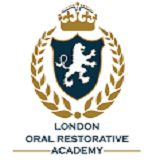
Ali Nankali,
Program Lead,
The London School of Medicine and Dentistry
UK
Biography
Will Update soon.
Research Interest
Aim: Cavity preparation is one of daily dental practitioners’ involvements; hence, clinicians should be confident for their preparations and achieve an appropriate designed cavity for planed restorations. This research was done to assess the strength of cavity preparations and avoid iatrogenic damages. Methods: In 2015, six full-day “lectures – hands on†CPD courses delivered by eWisdom (London Deanery) at Barts and Dental Institute, at Queen Mary University were dedicated for this study. 206 cavity preparations were observed and analyzed to work out the most common existing issues and was tried to find appropriate solutions. 12 practitioners attended each course with a minimum two cavity preparations by each individual, which was analyzed and discussed accordingly. The main problem was detected on opening the contact area for the posterior teeth both for direct and indirect visions. Another main noticed issue was the differences in preparation accuracy between buccal and lingual/palatal side related to the sizes and axial wall angles. In this study, number of factors such as: postures, visions and burs were determined to observe the deviations in achieved outcomes. Results: The study demonstrated the impact of the “lectures – hands on†CPD courses on outcomes. In addition, it illustrated that practitioner, who have difficulties in cavity preparations, can be divided in three groups: one group - not aware about their weaknesses, the second group - know about the issues yet they know the reason, and the third group - aware of the issues and they just need some appropriate more practice preferably under supervision. More interestingly, it was experiential that after finding the reasons of making mistakes, most of practitioners adjusted their work dramatically which approved the impact of this type of course. Conclusion: Dental laboratories are one of the best places to help practitioners to improve their weakness; furthermore, it will help educational systems to understand the clinicians’ need.

